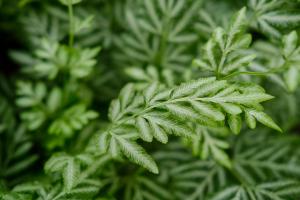Do Dragonflies Fertilize Water Plants?
Dragonflies are fascinating creatures that spend most of their lives around water sources such as ponds, lakes, and rivers. They are known for their intricate flight patterns, striking colors, and long, slender bodies. But have you ever wondered if these insects play a role in the fertilization of water plants? Let's explore this question further.
Dragonflies and Their Habitat
As mentioned earlier, dragonflies are aquatic insects that are found near water bodies. They have adapted to live in both freshwater and saltwater environments, with some species even residing in swamps and bogs. Their habitat includes the surface of the water, where they lay their eggs, and the surrounding vegetation, where they hunt for prey.
The Life Cycle of Dragonflies
Dragonflies go through a remarkable metamorphosis during their life cycle. They start as an egg laid in the water, where it soon hatches into a larva, also known as a nymph. The nymphs spend most of their time in the water, eating small aquatic animals such as tadpoles and mosquito larvae. The final stage of their life cycle involves emerging from the water as an adult dragonfly.
The Relationship Between Dragonflies and Water Plants
Dragonflies are known to be predators of small aquatic animals such as mosquitoes, flies, and small fish. However, there is no evidence to suggest that they play a direct role in the fertilization of water plants. While they may occasionally land on a plant or lay their eggs near one, they are not responsible for pollinating or spreading pollen from one plant to another.
Other Factors That Impact Water Plant Fertilization
While dragonflies may not directly fertilize water plants, there are other factors that impact the process. One of the primary factors is the presence of other insects such as bees, butterflies, and beetles, which are responsible for pollinating water plants. Another factor is the availability of nutrients such as nitrogen and phosphorus, which can come from natural sources such as decomposing plant matter, or from human-made fertilizers.
The Importance of Water Plants
Despite the lack of evidence suggesting that dragonflies directly fertilize water plants, these plants play a crucial role in maintaining healthy aquatic ecosystems. They provide food and shelter to a diverse range of aquatic animals, and also help regulate water quality by removing excess nutrients such as nitrogen and phosphorus from the water. Without these plants, the balance of the entire ecosystem would be disrupted.
Conclusion
In conclusion, while dragonflies are fascinating creatures that inhabit water sources, they are not responsible for fertilizing water plants. Other insects such as bees and butterflies play a crucial role in pollinating these plants, while natural and human-made fertilizers provide necessary nutrients. Nonetheless, water plants remain an essential component of healthy aquatic ecosystems, and their preservation should be a priority for us all.

 how many times do yo...
how many times do yo... how many planted tre...
how many planted tre... how many pine trees ...
how many pine trees ... how many pecan trees...
how many pecan trees... how many plants comp...
how many plants comp... how many plants can ...
how many plants can ... how many plants and ...
how many plants and ... how many pepper plan...
how many pepper plan...
































